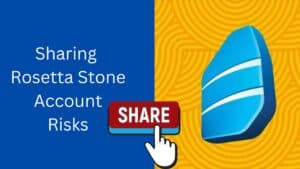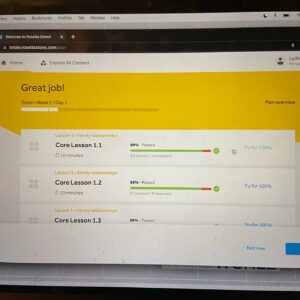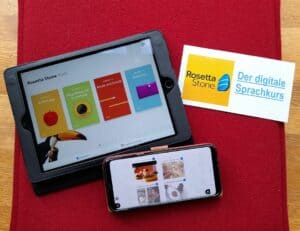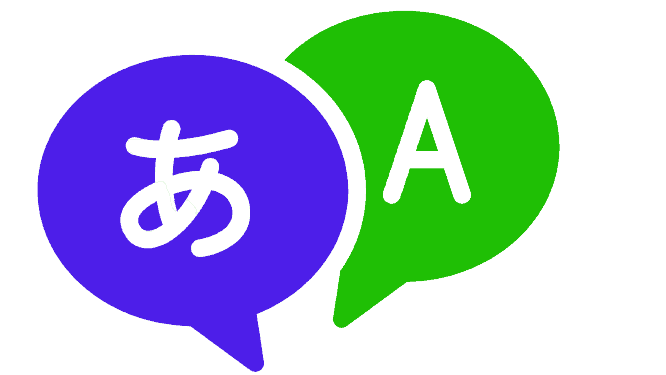Millions of individuals have used Rosetta Stone to learn a new language. Rosetta Stone is used by people, corporations, and educational institutions to improve their language skills. They like its interactive approach and tailored learning programs. But as Rosetta Stone has become more famous, some users have wondered if they can share their account information with other people.
Can I share my Rosetta stone account? This blog article discusses if sharing your Rosetta Stone account is acceptable. We’ll look at Rosetta Stone’s Terms of Use, the security risks of sharing account information, and alternatives to sharing. This blog article will help you decide whether sharing your Rosetta Stone account is good for you.
Can I Share My Rosetta Stone App?
Theoretically, you can share your Rosetta Stone account details with your friend & family. But, we highly discourage you doing so. When you share your credentials, it has more downsides than the advantages we see at first glance. Let’s discuss them one-by-one.

Why You Shouldn’t Share Your Rosetta Stone Account?
Terms of Use
The rules for using Rosetta Stone say that login credentials can’t be shared. The Terms of Service say that users can’t “share, sell, transfer, or make your Rosetta Stone account or login credentials available to any third party in any other way.” If you break this rule, your account may be suspended or closed without warning. At worse, Rosetta Stone may take legal action against people who do so.
The Terms of Service also say that users are responsible for keeping their account details and login passwords secret. This means that you are responsible for what other people do on your account if they use it without your permission.
Rosetta Stone has different payment choices. It has including family plans that let multiple people (03) have their own separate accounts under one membership. Do you want to give family or friends access to Rosetta Stone? You should buy a family plan instead of giving them your login information for your individual account.
Security Risks
Sharing your login information for your Rosetta Stone account with other people is a big security risk. It could put your personal information and account data at risk. When you give someone your login information, they can get into your account and see all of the personal information that goes with it. This includes your name, email address, and payment info.
If someone else uses your Rosetta Stone account without your permission, they might modify your account details or subscription. Moreover, they can access your payment information, or even access your computer or device if you have the Rosetta Stone app installed. This could lead to identity theft or other kinds of scams.
Also, if multiple people use the same account, it can make it hard to keep track of progress and make individual learning plans. The program in Rosetta Stone is made to adapt lessons to each user’s wants, growth, and skill level. If more than one person uses the same account, it can cause misunderstanding and make it hard for everyone to learn.
It is best not to let other people use your Rosetta Stone account login information. This will protect your personal information and give you the best learning experience.
Ethical Considerations
How good it is to share a Rosetta Stone account depends on the situations and the person’s goals. In general, sharing an account that was made for one person is unethical and against the rules of the company.
When you let other people use your account, you could be costing Rosetta Stone money that they would have made from a separate account purchase. This can make it harder for the company to keep developing and improving its language-learning software. This makes it harder for the business to serve its users.
Sharing an account with someone who isn’t allowed to use it can also be a violation of copyright laws. Rosetta Stone owns the rights to their tools and material. So if you share them without their permission, you are breaking those rights.
Learning Roadblocks

The Rosetta Stone program monitors your progress as you study and allows you to pick up where you left off. It also uses speech recognition technology to keep track of how you say words and tell you how to improve.
But if more than one person uses the same Rosetta Stone account, the speech recognition function may not work as well. This is because the program might not be able to tell the difference between how different people speak and give accurate feedback.
Also, it becomes hard to keep track of progress and make sure that each person is getting personalized training. When you leave the app after taking some lessons, your friend will login. He observes that the progress is not as it should be when he left the app last time. In such scenario, he might reset the language progress to the beginning.
So, each user should have their own account and payment to get the most out of the program and make sure they learn in a way that works best for them.
Rosetta Stone Device Limit

Users can use their Rosetta Stone account on up to two (02) devices, such as a computer, tablet, or phone. This means that you can run the Rosetta Stone app on two different devices and use the software on both, as long as you are the only one using the devices.
But it’s important to know that if you give other people access to your Rosetta Stone account and they use it on their own devices, you could go over the number of devices allowed. Also, don’t use a public or shared device to activate your Rosetta Stone access. It could put your personal information and account information at risk.
Can You Share Rosetta Stone with Family?
Yes, if you buy a family plan, you can share Rosetta Stone with your family. Rosetta Stone’s family plans let three persons use the program at the same time, each with their own account. This is a great way to give family members access to Rosetta Stone without breaking the rules of the company or putting your personal information at risk.
With a family plan, each family member can have their own login information and personalized learning plan. This lets everyone learn at their own pace and skill level. Also, family plans are often cheaper than individual packages because they cover more people. This makes them a good choice for homes with more than one person learning a language.
Alternatives to Sharing Your Account
There are options to sharing your Rosetta Stone account that allow you to help others learn a language without breaking the company’s rules or putting your personal information at risk. Here are some ideas:
Buy a family plan. Rosetta Stone has family plans that let more than one person (03) have their own account under the same subscription. This is a great choice if you want to give your family or close friends access to Rosetta Stone.
Recommend Rosetta Stone: If you know someone who wants to learn a new language, you can suggest that they use Rosetta Stone. This is a great way to show other people what the software can do without giving out your account information.
Share tools for learning languages: There are lots of free websites, podcasts, and YouTube feeds that can help you learn a language online. You can give these materials to people who want to learn a new language.
Buy a gift subscription: With a gift subscription from Rosetta Stone, you can give the gift of learning a language to someone else. This is a great choice for birthdays, holidays, and other special events.
Conclusion | Rosetta Stone Multiple Users on One Subscription
In the end, it’s not a good idea to let other people use your Rosetta Stone account. It goes against the rules of the company, creates a security risk, and could hurt both users’ ability to learn. Instead, think about buying a family plan or informing others about Rosetta Stone.
By following the company’s rules and looking into other choices, you can help other people learn a language while keeping your personal information safe and making sure everyone has a good time. Don’t forget that learning a language is an investment in yourself and your future that will pay off, and there are many ways to help you reach your language-learning goals.
FAQs
Rosetta Stone offers courses in over 25 languages, including Spanish, French, German, Italian, Mandarin, Japanese, and Arabic.
You can study while on the move with Rosetta Stone’s mobile applications for iOS and Android smartphones.
No, doing so is against corporate policy and is not advised while using a Rosetta Stone account. If your friend change the learning language, it will hamper your own progress. Instead, think about getting a family plan or referring Rosetta Stone to friends and family.
Yes, you may move your membership to Rosetta Stone to a different computer by deactivating it on the first one and activating it on the new one.
Yes, Rosetta Stone gives new customers a free 3-day trial to test out the program and see if it’s a suitable match for their language learning objectives.
Yes, by entering into your account and completing the cancellation steps, you can terminate your Rosetta Stone membership whenever you’d like. Note that cancellation might prevent you from accessing your Rosetta Stone account and your progress.

Meet Bill, a French language teacher and blogger who specializes in testing various language learning apps. He has been teaching French for nearly 4 decades and holds a Bachelor’s degree from Manhattanville College. With a passion for technology and how it can enhance language learning, Bill has spent years testing and reviewing different language learning platforms. His blog provides valuable insights into the pros and cons of each app, as well as tips for language learners of all levels.
